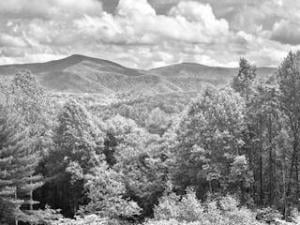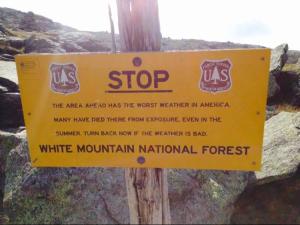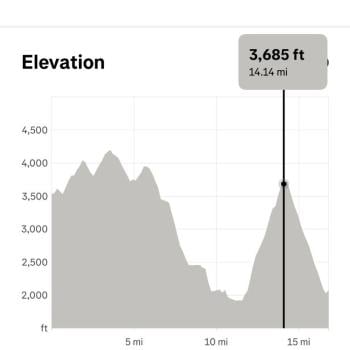A client recently asked in session how I could live with such ease. The client was dealing with both anxiety and Obsessive Compulsive Disorder (OCD) and their symptoms are quite acute. As I was engaging in my lectio the following day, Psalm 56:2b-3 stood out. It reads, “you are the most High, when I am afraid, I put my trust in you.”
In reflecting on this (contemplatio), I found this to be a powerful reminder of God’s providence and the movings of the Holy Spirit. It reminds us that no matter what our struggle is, God will guide us through tumultuous storms. We see this earlier in Psalm 23 where we are reminded that we will not have to want because the Lord guides us.
In this post, I want to consider fear, God’s providence and the posture of vulnerability we must engage if we are to truly trust in God.
The Fear of God: Reverence, Awe, and Holy Disquiet
For much of my early preaching career, I preached a different message around the fear of God and like they say, hindsight is 20/20. As I have matured spiritually and have many spiritual writers since those early days, I equate this word more with awe. As an outdoorsman, there are some natural and wild areas where everything is overwhelming in terms of its scope and beauty. In a term that I have held close to me since it heard it, these places are awe ful. Some places, like when I was in Tennessee, where the bugs are a bit less nicer or in some of the storms I have weathered in the outdoors, you begin to realize that you are not the apex creature you are when you are at home, snuggled in your recliner. This is the position we take when we consider God’s majesty.
We are presented a great image of God in Moses and his experience in the burning bush. Too often, we try to put God in a box and apply imperial language that considers God with all the “omnis”. The problem is that God, like God shows up in the bush is formless, shapeless and powerful, but is not consuming. We get a hint of this earlier in Genesis where see God limit Godsself when God allows Adam and Eve to make their own decisions around how they were going to separate themselves from God’s providence.
To refine this further, let us consider the distinction between unhealthy fear (anxiety, dread) and holy fear (awe, humility, surrender) and how holy fear draws us toward deeper trust and love, not away from God.
God’s Providence: Divine Care Amid Uncertainty
Providence is a core Wesleyan idea. Scripturally and theologically, providence is complex. The bible is full of stories of God’s providence. From Joseph’s experience in Egypt, Elijah being fed by ravens and Jesus calming the storms, the stories of both the Old and New Testament demonstrate the many ways God shows up.
How does God show up for you? We often have a misguided view of how God should show up based on what I believe is from our collective traumas of people not showing up for us. This was particularly true in the era of Jesus as my boyfriend of the late nineties and early aughts. We also tend to lean into the idea that God is a divine magician who will magically make any calamity, stress or obstacle magically go away without any input from us.
I tend to see this differently. I tend to lean into the idea that sees God “who is relational and actively engaged with creation, allowing for genuine interaction and an open future. It posits that God’s love is uncontrolling, meaning that human actions can influence divine responses, fostering a dynamic relationship between God and humanity.” While God is always with us, we must come to the door and invite God in and create a divine dialogue that keeps us connected to God.
God continually offers guidance, care, and love regardless of our perceptions of worthiness. Providence involves recognizing God’s ongoing support in all situations, though it can be difficult to discern during times of suffering or uncertainty.
Vulnerability as a Posture of Faith
As a practice, one must adopt a sense of vulnerability as a posture of faith. I often say that faith is a transrational experience. For non-believers, the idea of believing in a transrational reality that we call God makes no sense. As a spiritual practice, one must lean into the idea of openness. Openness is an ability to go with the flow, as Taoism puts it, without expecting predetermined outcomes. It means being receptive to new possibilities, without prejudging them. It is an ability to make yourself available to out-of-the-ordinary opportunities. Indeed, openness to the unknown, the exotic, and the bizarre is usually seen as the mark of a free spirit.
Vulnerability then becomes not only a path of faith but also a profound practice of living authentically and expansively. It creates a bridge between your inner experiences and outer expressions, encouraging you to trust in the unfolding journey of your life. Defining vulnerability involves embracing openness, honesty, and surrender in relation to God. Jesus exemplifies vulnerable trust, as demonstrated through his experiences in Gethsemane and on the cross, particularly in expressing, “not my will, but yours be done.” This highlights the paradox that true strength arises from acknowledging one’s own weakness and dependence.
Practical approaches to fostering vulnerability include:
- Engaging in prayer and lament,
- Participating in confession and seeking community support,
- Relying on the assurances found in God’s promises.
To Close – The Interplay: How Holy Fear, Providence, and Vulnerability Converge in Trust
The bible is full of references to mountains. Of course, geography plays a role, but it is the majesty and grandeur of a mountain range that can make you feel very, very small and insignificant. This is especially true if you are looking at climbing said mountain or stuck in a thunderstorm on said mountain. Mountains can make us feel a certain reverence for the topography around us. Consider fear, we must consider the notion of holy fear. Holy fear is a reverent awe and respect for God, recognizing God’s greatness and holiness. It inspires a desire to honor God and live according to God’s will, rather than a fear that drives one away from God. The knowledge of God’s providence guides us toward rather than away from God.

God’s providence encourages us to cultivate trust, particularly amid uncertainty. Embracing vulnerability can facilitate the transition from fear to confidence. Engaging in spiritual practices—such as reflective reading, periods of silence, and intentional acts of hope—can help support this process.











